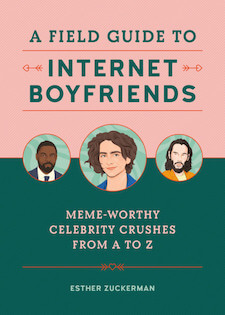What are you reading in November?

In our monthly book club, we discuss whatever we happen to be reading and ask everyone in the comments to do the same. What Are You Reading This Month?
A Deadly Education by Naomi Novik
Naomi Novik—still maybe best known for her “Napoleonic Wars, but there are dragons now” series Temeraire—has built up a considerable practice in the fairy tale trade in recent years, offering up emotionally intelligent, egalitarian, and endlessly twisty takes on ancient folk tales in the form of books like Uprooted and Spinning Silver. Now Novik has set her sights on the biggest fantasy whale of them all, daring to ask, what if the Harry Potter books took place in the Cthulhu mythos? Her answer to that question, A Deadly Education (September 29, Del Rey), is exactly as brutally violent as that premise might suggest, featuring as it does a local Potter stand-in who’s wrecking the Hogwart equivalent’s grading curve, not by doing well in potions class, but by keeping an unusual number of his fellow students alive in the face of constant attacks from the hideous monsters that infest their school in vigilance-demanding numbers. As with her last two books, Novik grounds this blend of low fantasy and horror by situating the book within the voice of an instantly winning narrator, in this case a young witch who’s trying to survive her hellish semesters without becoming the apocalyptic, fire-hurling world-breaker she’s prophesied to be. That outsider perspective also allows Novik to create a compelling satire of the capitalist underpinnings of even the most magical of societies, crafting a world where the difference between the haves and the have-nots is literally who ends up getting their soul sucked out by a tentacle monster from hell. [William Hughes]
Ghoster by Jason Arnopp
We need more smartphone horror. No more period pieces. No more age-old curses. No more palatial mansions haunted by doomed lovers from the 17th century. We need more horror stories about dopey millennials spiraling into the nightmare transmitters in their pocket. We need more books like Ghoster. Jason Arnopp’s 2019 follow-up to The Last Days Of Jack Sparks (published by Orbit) is spooky, funny, and, perhaps most importantly, in touch with the way young people use technology. It follows Kate, a millennial paramedic who gets ghosted by her boyfriend on the day she moves across the U.K. to live with him. That’s horrifying enough, but what she finds inside the smartphone he left behind—DM philandering, ominous journal entries, hours-long videos of sleeping acquaintances—paves the way for all kinds of supernatural fuckery. Kate is also just a great protagonist, someone who is wry and self-aware but not immune to the obsessive urge to trace the digital footprint of whoever it is they’re dating. The person you’re seeing IRL, after all, is probably a lot different online. [Randall Colburn]
A Field Guide To Internet Boyfriends by Esther Zuckerman
Nonfiction books about the internet can be a tough sell—how can the printed-and-bound written word possibly keep up with the frenzy of cyberspace, with hot takes flying faster than you can flip a page? Astoundingly, A Field Guide To Internet Boyfriends: Meme-Worthy Celebrity Crushes From A To Z (November 10, Running Press) manages to feel both incisively of-the-moment and refreshingly holistic, tracing the intricate details that lead to the emergence of each crush à la mode while placing them within the broader context of the internet’s evolution. The playful guidebook doubles as a marker of shifting cultural mores, a tribute to the new era of thirst largely shaped by women and queer folks, celebrating compassion and sensitivity just as much as good looks and charm. All credit is due to author Esther Zuckerman, a senior entertainment writer for Thrillist (and former A.V. Club staffer), who clearly spends a lot of time on Twitter. Zuckerman’s informed approach is both frank and funny, chaperoning her readers through seemingly niche moments that launched each celebrity to “Internet Boyfriend”—or girlfriend—status. For example, the section on Oscar Isaac (a personal favorite) spends equal time lauding his dashing turn as Poe Dameron in the recent Star Wars trilogy as it does heralding a photo of the actor eating Hot Cheetos with a pair of chopsticks. It’s a breezy read, but each object of affection is lovingly rendered in handsome illustrations from artist Louisa Cannell, and the entire book has a crisp look that makes it a perfect coffee table addition to reference (and swoon over) again and again. [Cameron Scheetz]